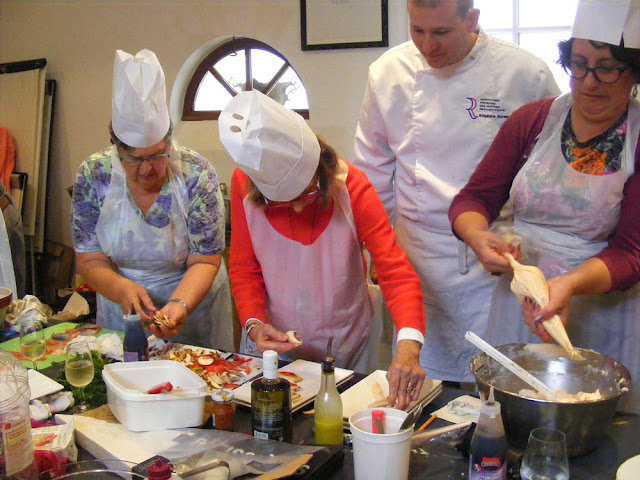Jacques Puisais, born in 1927 at Poitiers and died in December 2020 in Chinon hospital, was a French biologist and oenologist, author of books on wine and taste phenomena, philosopher and creator of the concept of the "goût juste". This is an idea that is very easy to define in French -- it is the opposite of "malbouffe". But in English it is much more complicated. It's not just a question of good food versus bad food. It's like the concept of "terroir", where a single simple phrase or word encompasses a whole raft of interacting phenomena. So "le goût juste" is about good food, delicious tastes and seductive textures, the right food and wine pairings, slow food, high quality ingredients skillfully and respectfully prepared by artisans, and consumers who are educated enough to appreciate and value all this. "malbouffe" on the other hand is junk food, fast food, cheap poorly prepared industrially processed ingredients and ignorant consumers.
The son of a wine salesman he went on to specialise in analytical chemistry and oenology and obtained a doctorate in science from the University of Poitiers. His first job was with the Poitiers analysis and research laboratory. He moved to Tours in 1959 to take over the management of the Indre-et-Loire Departmental and Regional Laboratory of Analysis and Research, which tests soil, water and food for hazardous contaminants.
Keen to encourage children to taste, from a very early age, he developed a method of sensitisation and awareness known as the Sapere method that was widely used in school classes. He started giving taste education classes in 1964. In 1974, he experimented with his first "taste class" in primary schools in the Tours region. In 1976, he founded the French Institute of Taste in Tours and Paris, with the idea of developing multidisciplinary research on taste and food sensitivity. He continued his research and developed a teaching method with teachers. From 1984 onwards, his method was applied on a national scale until 2000. Approximately 100,000 children were thus made aware of taste by teachers trained at the French Institute of Taste. In the past decade or so, if you watch local television, you will see one of his protegées, senior Institute of Taste member, the gastronomic journalist Périco Légasse, on screen frequently.
In 1999, Jacque Puisais collaborated in the creation of the Images du goût and the Atelier du goût at the Futuroscope near Poitiers.
He was also very interested in food and wine matching, which he helped to popularise. His scientific work on this subject has become an authority and has influenced many famous sommeliers and chefs. He is the author of numerous works devoted to wine, taste and food/wine pairing.
He died at the age of 93 of Covid-19, active with a blog and workshops to the end, but not widely known outside an elite group of epicureans. I suspect that like many obsessive experts he made as many people uncomfortable as he influenced to his own point of view. In later life he often complained that when he approached local councils to offer them taste classes in their schools they would tell him they would rather spend the money on 10 metres of new footpath.
Although the course he designed is no longer part of the school curriculum in France, there is now La Semaine du Goût, when French children spend a week learning about food, including everything from international cuisines to how climate change affects food supply chains. His ideas about teaching children about how to experience the taste and texture of food are now mainstream, but the chains of fast food outlets and industrial food production continued to proliferate despite him, and the food industry is involved in la Semaine du Goût. He was deeply distressed when in 2019 a survey showed that his beloved Tours, one of France's official centres of gastronomy, was the third worst city in France for "malbouffe" (junk food), using the measure of numbers of fast food outlets per head of population. (The worst two, in case you are interested, are Bordeaux and Metz.)
Further reading: Washington Post article from 2009.







2 comments:
We have noticed how fast food enterprises, including the pizza machines, are now everywhere in France, and how popular they are. Also that there is a greater number and variety of ready meals available in the supermarkets. We have tried some of them and many are not good at all, even though they are not cheap, and no better than the rubbish available in the UK.
I think that the convenience of these foods appeal to people who would rather be doing other things than cooking from scratch, with all the shopping, preparation and clearing up that adds to the time required. There are times when I'm up to my elbows in washing up, with the dishwasher also full and hard at work, that I can see the appeal.
The ready meals from the charcutier are excellent, but more expensive than eating out.
Post a Comment